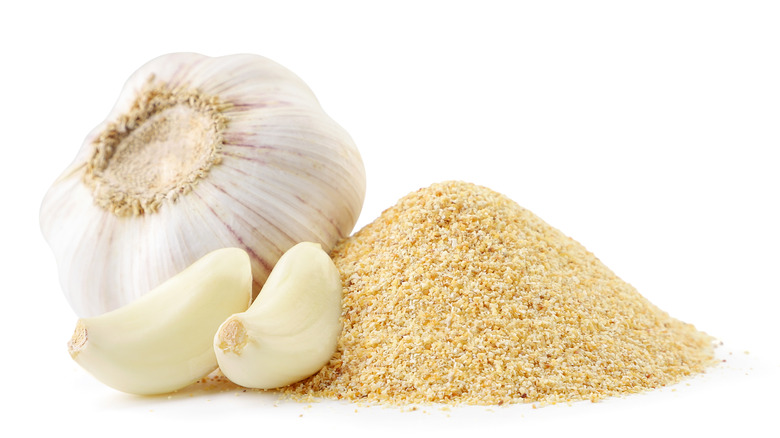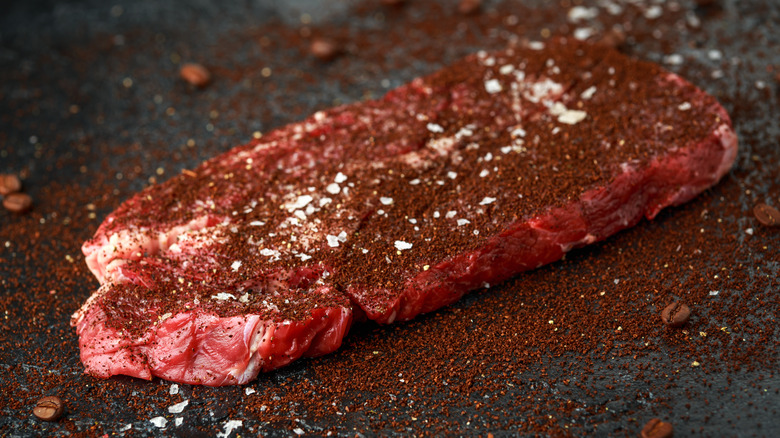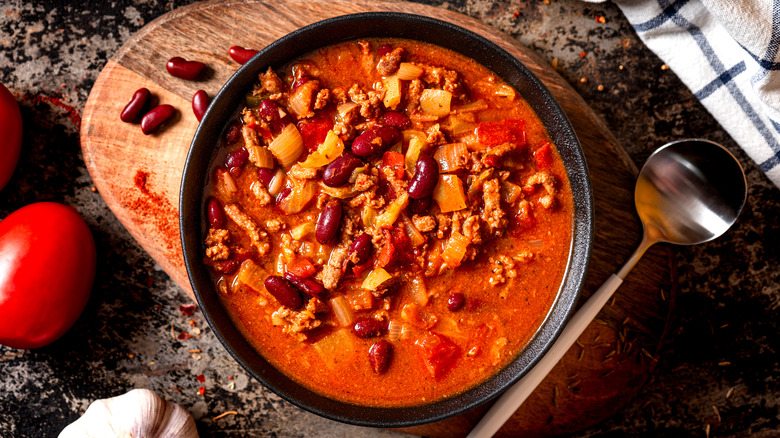When To Cook With Garlic Powder Vs. Granulated Garlic
Garlic powder and granulated garlic are two distinct ingredients, characterized by the variance in the size of their granules. Both are made from fresh garlic that is dehydrated and then ground, but the size of the granules affects both the flavor and texture of each ingredient. Granulated garlic, which is thicker and more robust, carries a stronger flavor and a distinctive texture, while the finer garlic powder has a subtler flavor and a softer feel.
Certain situations may render one of the two more suitable, despite their shared origins and similar uses. Garlic powder shines in recipes that have already finished cooking or those that require less cooking time. Granulated garlic, on the other hand, stands up better to high temperatures and longer cook times. Still, when it comes down to it, the decision is yours to make, based on your personal preference and the specific texture and flavor you're aiming to achieve.
Granulated garlic is not garlic powder
While it wouldn't be too outlandish to confuse granulated garlic and garlic powder or swap them in a recipe, it's important to remember that they are in fact two different ingredients. To compare the size of the granules, consider the differences between cornmeal and cornstarch. Granulated garlic is coarsely ground and has a more sand-like consistency like cornmeal, while garlic powder has a finer consistency closer to cornstarch.
Due to its larger size, granulated garlic won't really dissolve into a cooking liquid the same way that garlic powder will, so it's great to use granulated garlic in instances where you might want to notice the texture, like for a spice rub on steaks or burgers. Another might be using it in hot dishes like rice bowls, stir-fries, or on top of pizza. You only want to use it for dishes or items where its texture won't be an issue. If you're making a very smooth soup like a butternut squash soup, for example, granulated garlic might give it a gritty texture and mouthfeel. It can last two to three years in the pantry, so it's a wonderful spice to have on hand if you're out of fresh garlic.
When to use garlic powder
Given its fine consistency, garlic powder readily dissolves into hot liquids. Once incorporated, you'll no longer notice it from a textural standpoint. In terms of flavor, garlic powder is a bit gentler compared to granulated garlic, so it works well in salad dressings, soups, and stews. Due to the fact that it's so mild and delicate, it doesn't always survive the high heat of the cooking process, so it can be nice as a mild final touch on items that are already cooked and ready to serve. Interested in enhancing the flavor profile of your chili con carne without resorting to extra salt, or looking to make the perfect baked potato? Try a hint of garlic powder.
Due to its finer texture and lower air content, garlic powder delivers a more concentrated flavor per spoonful than granulated garlic, so keep this in mind when substituting one for the other. Use more granulated garlic instead of garlic powder, and less vice versa. At the end of the day, both granulated garlic and garlic powder can add unique flavor to whatever you're cooking.



